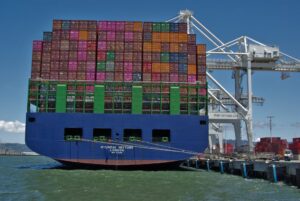The Port of Rotterdam has released a new video detailing the potential of its ‘Floating Lab’, a waterborne hi-tech lab that collects field data with the goal of developing smart port applications and autonomous shipping solutions.
The Floating Lab was launched in October 2018 and has provided a platform for testing ideas and assisting the Port in its drive to be the most technologically advanced in the world.
Learn more about the Port of Rotterdam by exploring its AIS portal
The team behind it works together with private sector partners, educational institutions and research institutes. Crucially, its research increases connectivity between vessel and shore, therefore improving safety and response standards.
A recent Port Technology technical paper examined Rotterdam connectivity ambitions
In a statement released alongside the video, Harmen van Dorsser from the Port of Rotterdam Authority said the Floating Lab’s research is vital for ensuring further innovation in the future.
‘Smart ships that can operate completely autonomously are still a dot on the horizon. What’s important is that together with the maritime sector, we explore which paths we need to take to get there.
“The ongoing development of Smart Shipping has already created new possibilities. But a lot still needs to happen before a vessel can move through a port area either independently or controlled from a remote location.
“Connectivity is crucially important, for instance. The data link between vessel and shore needs to be 100% reliable.
“If you’re operating a ship from a distance, it only has to take one second of delay for you to hit something.
“At Floating Lab, we’re researching how to use IoT technology to achieve this standard of 100% connectivity in the port.”









